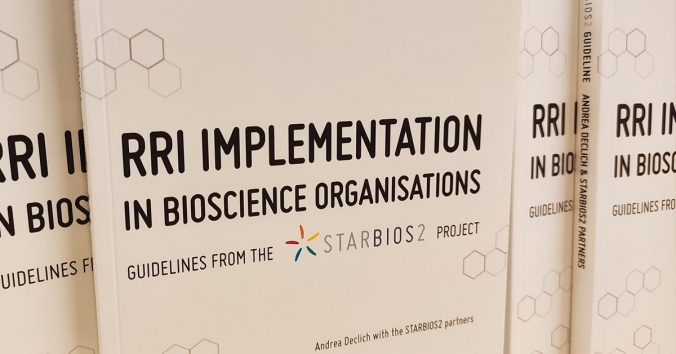Our attitude to science is changing. Can we talk solemnly about it anymore as a unified endeavor, or even about sciences? It seems more apt to talk about research activities that produce useful and applicable knowledge.
Science has been dethroned, it seems. In the past, we revered it as free and independent search for the truth. We esteemed it as our tribunal of truth, as the last arbiter of truth. Today, we demand that it brings benefits and adapts to society. The change is full of tension because we still want to use scientific expertise as a higher intellectual authority. Should we bow to the experts or correct them if they do not deliver the “right knowledge” or the “desirable facts”?
Responsible Research and Innovation (RRI) is an attempt to manage this risky change, adapting science to new social requirements. As you hear from the name, RRI is partly an expression of the same basic attitude change. One could perhaps view RRI as the responsible dethroning of science.
Some mourn the dethroning, others rejoice. Here I just want to link RRI to the changed attitude to science. RRI handles a change that is basically affirmed. The ambiguous attitude to scientific expertise, mentioned above, shows how important it is that we take responsibility for people’s trust in what is now called research and innovation. For why should we listen to representatives of a sector with such unholy designation?
RRI is introduced in European research within the Horizon 2020 programme. Several projects are specifically about implementing and studying RRI. Important aspects of RRI are gender equality, open access publishing, science education, research communication, public engagement and ethics. It is about adapting research and innovation to a society with new hopes and demands on what we proudly called science.
A new book describes experiences of implementing RRI in a number of bioscience organizations around the world. The book is written within the EU-project, STARBIOS2. In collaboration with partners in Europe, Africa and the Americas, this project planned and implemented several RRI initiatives and reflected on the work process. The purpose of STARBIOS2 has been to change organizations durably and structurally. The book aims to help readers formulate their own action plans and initiate structural changes in their organizations.
The cover describes the book as guidelines. However, you will not find formulated guidelines. What you will find, and which might be more helpful, is self-reflection on concrete examples of how to work with RRI action plans. You will find suggestions on how to emphasize responsibility in research and development. Thus, you can read about efforts to support gender equality, improve exchange with the public and with society, support open access publication, and improve ethics. Read and be inspired!
Finally, I would like to mention that the Ethics Blog, as well as our ethics activities here at CRB, could be regarded as examples of RRI. I plan to return later with a post on research communication.
The STARBIOS2 project is organising a virtual final event on 29 May! Have a look at the preliminary programme!

Written by…
Pär Segerdahl, Associate Professor at the Centre for Research Ethics & Bioethics and editor of the Ethics Blog.
Declich, Andrea. 2019. RRI implementation in bioscience organisations: Guidelines from the STARBIOS2 project.
We recommend readings



0 Comments
1 Pingback